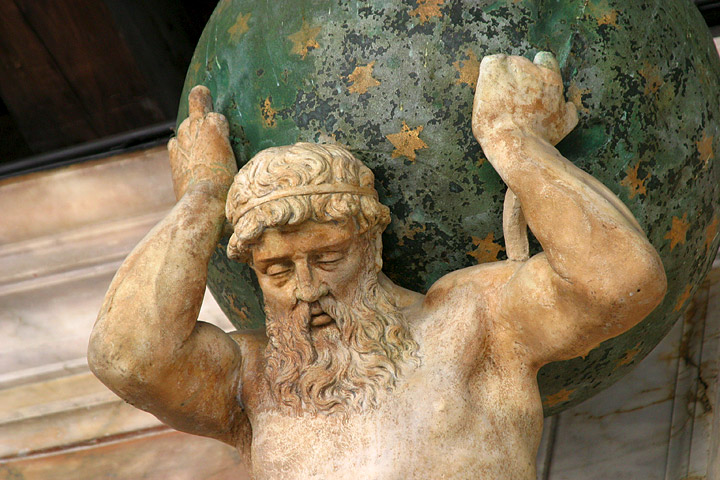On “Real,” from his debut album Food and Liquor, Lupe Fiasco rapped, “struggle…is just another sign that God loves you/cuz on the low, being po’ also teach you how to hustle.” Those lyrics became a mantra, a personal ideal to live by as the struggle had been something I’ve had to deal with my entire life. I accepted that life was hard for everyone, so I measured my success by how smoothly I maneuvered through the curves life threw in my direction. To me, life was a tightrope walk above a pit of fire, and I got a rush trying to find as many ways as possible to cross over to the other side without burning myself. My success was so tied to this notion, I viewed my entire life from the position: if it wasn’t hard, then it wasn’t worth doing.
In identifying so strongly with struggling as a method of progress, it became increasingly uncomfortable to enjoy anything which came easily. 50 Cent, when asked about his beefs with other rappers, once said that because he came from an aggressive environment, he was most comfortable when he was in conflict with other rappers. Not having a beef with someone made him feel weird. I felt the same way if I wasn’t struggling to achieve something. I became anxious whenever life was going too good, things were happening too “rightly,” or the universe took a break from spinning powerful whirlwinds of fuckery into my life. During a self-discovery phase, I realized this reliance on struggling as a way to feel comfortable started in my childhood.
I grew up in a single-parent household with another brother and sister, plus whatever family member needed space to crash on our couch. Struggling was a feeling I was familiar with. My mother did her damnedest to make sure my siblings and I never wanted for anything, but I was aware our financial situation was, to put it lightly, precarious. I was raised in a household where things varied from “ok, we’re going to be alright this month” to “shit is about to get super real, super quickly.” Whereas some might find the tension of this living situation stressing, I became accustomed to living on, metaphorically speaking, unsteady ground.
I became anxious whenever life was going too good, things were happening too “rightly,” or the universe took a break from spinning powerful whirlwinds of fuckery into my life.
Because I grew up without a great deal of resources, being able to “hustle” was a necessary skill for survival. It’s uncanny the way my mind automatically starts to focus on creating solutions when I’m presented with a problem. The mental gymnastics resembled an Olympic gold medalist during a floor routine in how my mind tirelessly worked out problems and probabilities of success while simultaneously imagining the results. This caused me to have a carefree and almost flippant attitude about life obstacles, because I knew I could rely on myself to weather the storm. What I hadn’t counted on, however, was how being comfortable in this constant state of tension had handicapped me from operating under “normal” circumstances.
I lived my life with the tacit notion it’d be filled with an innumerable amount of complications. On the rare occasion the universe decided to stop meddling in my affairs, I often found myself unfulfilled with things accomplished during that period. My skills were most formidable in the midst of crisis, and best used when deconstructing life’s impediments. With nothing to fight against, at best, I was a drifter. A man with no purpose. A wandering spirit in search of something of which to attach myself . At worst, I was a junkie looking for his next hit. If there was no struggle, I’d create one.
In hindsight, “if there’s no struggle to fight against, I’ll create one” reads nuttier than squirrel shit. At the time however, it made perfect sense. People frequently take refuge in places they know they’ll have the most success. While some get off on being challenged at every turn, others want little more than the ability to exist in an environment where everything is suited to their needs, tastes, and talents. Forcing myself into overwhelming situations in order to do what I was good at seemed sensible. I’m now aware it’s not.
I was a junkie looking for his next hit. If there was no struggle, I’d create one.
I wish I could say there was some meteoric, life-altering moment which changed my perspective. The truth of the matter is I simply burned myself out. As one might imagine, it took an enormous amount of energy to perpetually create problems for the sole purpose of feeling better about myself when I fixed them. I eventually realized my need to validate myself, to myself, had put me in a constant state of irritable moods and a generally curmudgeon-like demeanor. Letting this undefined notion of “struggle” take ownership of my life had closed me off to other experiences I could learn and grow from. In effect, operating in this repeated state of dysfunction was handicapping my ability to be a more well-rounded person and I had to put an end to it.
In the end, I’m thankful my early experiences in life gave me the ability to hustle, no matter what life throws in my direction. Being able to think clearly in the midst of life’s fantastically horrible things happens have saved me on more occasions than I can possibly think of. Judging myself by my ability to handle those situations wasn’t wrong, but I took it overboard and nearly ruined my development as a person in the process.
Suffice it to say, the struggle is now more distant cousin than close relative. And I’m better for it.
